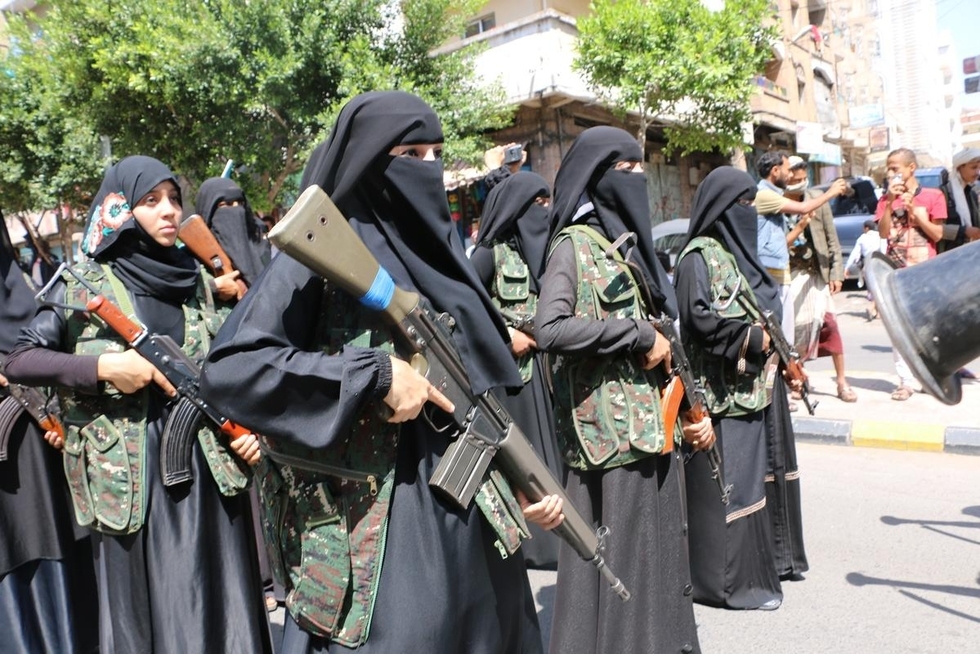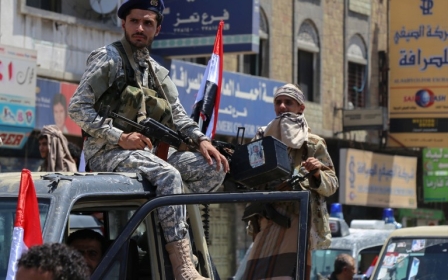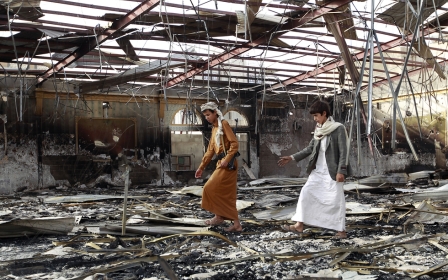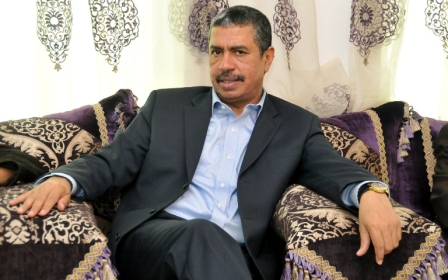Rising tensions between Yemen's Southern Movement and UAE forces

SANAA - The Yemeni government's decision to leave Aden and return to Riyadh suddenly on Sunday follows attacks on government buildings and rising tensions between the Arab coalition forces who helped seize back the city from the Houthi rebels, and the southern separatist movement.
The Yemeni government announced that its ministers had left Aden for Riyadh on Sunday evening because of the lack of adequate buildings for ministers to work in.
However, some analysts say that the government left the country because of the disputes in Aden, which have seen deadly attacks on government buildings and on the Red Crescent in recent days. Yemen's Prime Minister Khaled Bahah escaped unharmed after an attack on 6 October on the hotel where he was staying. The attack was claimed by Islamic State, although authorities in Aden blamed the strikes on the Houthis.
Fadhl Al-Rabei, a political analyst and the head of Madar Strategic Studies Centre in Aden, told MEE: "The Yemeni government left Aden for Riyadh under the pretext that there are not proper buildings in Aden for the ministers, while the ministers knew that there were not buildings before they came to Aden."
Yemen's government returned to Aden in September, six months after fleeing to Riyadh in the wake of the Houthi advance. But rising insecurity in the city since the Houthi withdrawal, as well as tensions with the Southern Movement which fought alongside the Arab coalition forces, have made it difficult to establish a functioning government.
New MEE newsletter: Jerusalem Dispatch
Sign up to get the latest insights and analysis on Israel-Palestine, alongside Turkey Unpacked and other MEE newsletters
When the coalition forces arrived in Aden in July, all groups including the Southern Movement welcomed them and considered them liberators of the city after four months of war.
The Emirates led the operation to push Houthi rebels out of the city with the support of the Resistance in Aden.
When coalition forces entered the city, headed by Emirati forces, there was no opposition, and after driving the Houthis out of Aden, the UAE started to prepare the city as the temporary capital of Yemen and to host the government. The Emirates took on the responsibility of rebuilding the city and - with the help of the Resistance - controlling public institutions in Aden.
However, the Southern Movement was unhappy about the setting up of the government in Aden, and advocated the separation of Yemen with Aden as the capital of the newly restored South Yemen.
Southern destiny
The leaders of the Southern Movement were grateful to the Emiratis for helping them to liberate Aden, but they have stressed that the Emirates and the coalition forces could not decide if Aden was to be the capital of the whole of Yemen.
Brigadier Nagi al-Arabi, the head of the national authority for liberating the south, told Middle East Eye that Wednesday was the 52nd anniversary of the beginning of the national liberation struggle against British rule, pointing out that separation of the south was also the movement's aspiration since the beginning of the revolution in July 2007.
"We appreciate the role of the coalition forces in general and the Emirates in particular, but we tell them that no one can decide the destiny of the population of the south, only the southern people can decide their destiny of the south. Today thousands of people came to Al-Arodh Square to tell the world that they are supporting the separation and want to regain their country," he added.
Participants in the anniversary of 14 October started arriving in Aden on Sunday, coming from several southern provinces, including Al-Mahrah province, which is near Oman. All of the participants demanded the separation of the south.
"We are grateful for the Emirati forces as they trained the Resistance [forces] of the Southern Movement, and we hope that they continue in rebuilding Aden as the capital of the South, and this is the purpose of the southern people," Al-Arabi added. He also said that the Southern Resistance should control security in Aden, pointing out that the main security of Aden should be in the hands of the Resistance who are more capable than any security force.
Al-Arabi added: "We hope that the Emirates will work in training the Resistance and rebuilding Aden, and leave the security side to the Resistance," stating that they do not like to see the Emirates forces receive the Yemeni government in Aden, and promising that Aden will be the temporary capital of Yemen.
Al-Arabi added that there was no dispute between the Southern Movement and the Emirates forces, stressing that they want the Emiratis to rehabilitate Aden as the capital of the south and not the capital of Yemen.
Movement does not care about its opponents
The deputy of the preparatory committee for the 14 October anniversary, Jamal Mutlaq, told MEE that the squares in Aden are open to the population in the south and they are not going to prevent anyone from expressing any views regarding unification.
Mutlaq added: "Thousands of people have been killed in the south demanding separation since 2007, and we promised the martyrs that we will continue their revolution, so we cannot say that we will abandon our revolution because of our opponents. We do not care about those opponents [and the coalition forces who also oppose the separation]."
He stated that there are some people who raised the photos of the Saudi King Salman, and the president of the Emirates Al-Sheik Khalifa Bin Zayed. "This is an indication that we allowed all people to attend the anniversary, but it does not mean that we will abandon the purpose of the revolution."
After the last war in Aden, residents expressed increasing opposition to unification and Yemeni flags were replaced with separatist flags.
Disagreements forced the government to leave
According to al-Arabi, after the attacks that targeted the Yemeni government and the Emirates Red Crescent in Aden last week, there has been a growing sense of insecurity in Aden as the Yemeni government felt that Aden is not a safe place for it to be situated.
He questioned the claims that Islamic State had carried out attacks on government buildings and Emirati forces. "There are not members of the Islamic State to attack the Yemeni government and the Emirates forces in Aden. These attacks reflect the disagreement between the Yemeni government supported by the Emirates and some groups in Aden, and this is the main reason that led the ministers to leave Aden," he added.
After the attacks in Aden last week, the Prime Minister Khalid Bahah said that the Yemeni government would continue working from Aden; however, the Yemeni government left Aden suddenly on Sunday.
Specialist anti-terrorist force
The director of Aden's security office, Mohammed Mosaed, told MEE that three days ago the coalition forces sent a specialist anti-terrorist force to bolster the city after the attacks.
"We intensified the security in Aden after the attacks of the alleged IS members in Aden, and the anti-terrorist force are going to save the city from any chaos by any group, and also they will train some members of the Resistance," Mosaed added.
He stated that it is a normal thing that there are disputes between groups in Aden, pointing out that some will support the coalition and others oppose it, but the security forces can prevent chaos in Aden with the help of the coalition forces.
Since July, military vehicles of the Resistance are still positioned in most of Aden's streets and the security forces have not yet replaced them. The only change in Aden's security during the last week are new checkpoints in the city.
Middle East Eye delivers independent and unrivalled coverage and analysis of the Middle East, North Africa and beyond. To learn more about republishing this content and the associated fees, please fill out this form. More about MEE can be found here.




